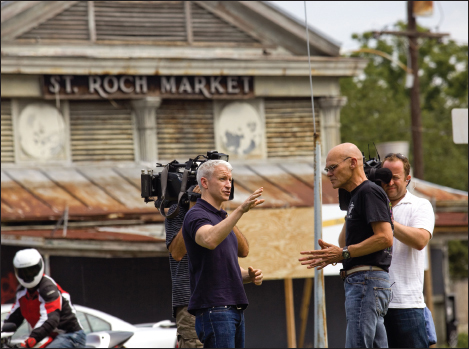Basic Cable
Printed Page 239
Basic cable offers numerous channels appealing to specific audiences’ interests that the broadcast networks don’t offer—such as ESPN (sports), CNN (news), MTV and VH1 (music), Nickelodeon (new children’s programs and older TV series reruns), Lifetime (movies), BET (Black Entertainment Television), the Weather Channel, and QVC (home shopping). Basic cable also offers superstations (independent broadcast TV stations uplinked to a satellite) such as WGN (Chicago) or WPIX (New York).
Typically, local cable companies pay each satellite-delivered service anywhere from less than $1 per month per subscriber for low-cost, low-demand channels to as much as $3 or $4 per month per subscriber for high-cost, high-demand channels like ESPN, which is available in two hundred countries worldwide. A standard basic cable channel may negotiate a fee somewhere between 25¢ and $1 per subscriber per month, usually demanding more in areas serving larger populations. That fee is passed along to consumers as part of their basic monthly fee.
In 1992, 87 cable networks were in business. By 2012 that number had grown to nearly 900, including cable and satellite television services.2 With the advent of high-bandwidth fiber-optic cable and digital cable in the late 1990s, cable systems could expand their offerings beyond the basic analog channels. Digital cable typically uses set-top cable boxes to offer on-screen program guides and dozens of additional premium, pay-per-view, and audio music channels, increasing total cable capacities to between 150 and 500 channels. Even more than broadcast network programming, cable services evolved far beyond the old limited categories of news information and fictional entertainment. Satisfied with smaller niche audiences, cable became much more specialized than its broadcast counterpart.

Specialized Information: CNN
CNN, the first 24/7 cable TV news channel, quickly mastered continuous coverage of breaking news events and early on avoided presenting news anchors as celebrities (like network anchors). With around-the-clock programming, it began delivering up-to-the-minute news in great detail and featuring live, unedited coverage of news conferences, press briefings, and special events. Through its commitment to maintaining international bureaus (although cutbacks occurred during the 2008–2009 economic crisis), CNN today dominates international TV news coverage. It operates in more than two hundred territories and countries where many viewers use it to practice their English; more than two billion people have access to a CNN service. Since CNN’s emergence, 24/7 cable news stations, including MSNBC, Fox News, and several financial news channels (like CNBC and Bloomberg), have proliferated, stealing even more viewers from broadcast network news.
Specialized Entertainment: MTV
Started in 1981, MTV (originally the Music Television Network) and its global offspring reach more than four hundred million homes worldwide. MTV initially played popular music videos from mainstream white artists for white suburban teens; however, the popularity of Michael Jackson’s Thriller album in late 1982 opened MTV up to black artists and more diverse music forms. Then, in the late 1980s and early 1990s, MTV began providing more original programming with shows like The Real World and Beavis and Butt-head and more recently Jersey Shore and MADE. Since MTV’s inception critics have worried that much of MTV’s programming has encouraged vulgarity and overt sexism. Advocates maintain that MTV (and cable overall) has created a global village by giving people around the world a common language and cultural bond. They also applaud MTV’s special programs on important social issues such as drug addiction, racism, and social/political activism, especially with its Rock the Vote campaigns that encourage young people to participate in national elections.